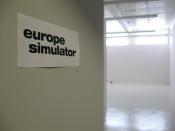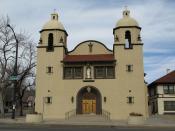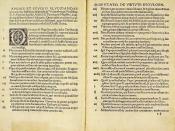One of the most important religious revolutions in history was the sixteenth century religious revolt known as the Protestant Reformation. This conflict divided the Christians of Western Europe into two religious groups: Protestants and Catholics. The reasons behind the Reformation movement included political, economical, social, and religious differences. In the beginning of the sixteenth century, Western Europe had one major religion, that of Roman Catholicism. The Catholic Church was wealthy, powerful, and had maintained a tight reign on Europe's traditional society. Gradually, however, there developed political and social problems within the Church. The common people criticized the management of the church and began to doubt some of its teachings. As old methods of the church lost efficiency, and a new denomination of religion formed, political and social changes began to shake the foundations of Europe.
With recourses like the printing press now available, translation of religious texts were now possible, yet the Catholic Church was hesitant on doing so, for it would bring controversy.
An example may be seen in the old verse, ÃÂAll men are equal in the eyes of GodÃÂ; such proverbs would create a kink in the Great Chain of Being, and would, therefore, challenge the authority of the pope and other major religious figures. Yet, The Protestant Revolution, brought changes, including translation of these texts. Rooted in Protestant teachings is the belief that one may find salvation through The Bible without a priest or a middle-man. As a result a The Bible was translated so Protestants may find such salvation. In fact, Luther made the translation of the Bible from Greek and Hebrew into German, and soon all the countries of Europe followed his example by translating the Scriptures into their languages. Since The Bible, was the most read book in Europe, and it was...


